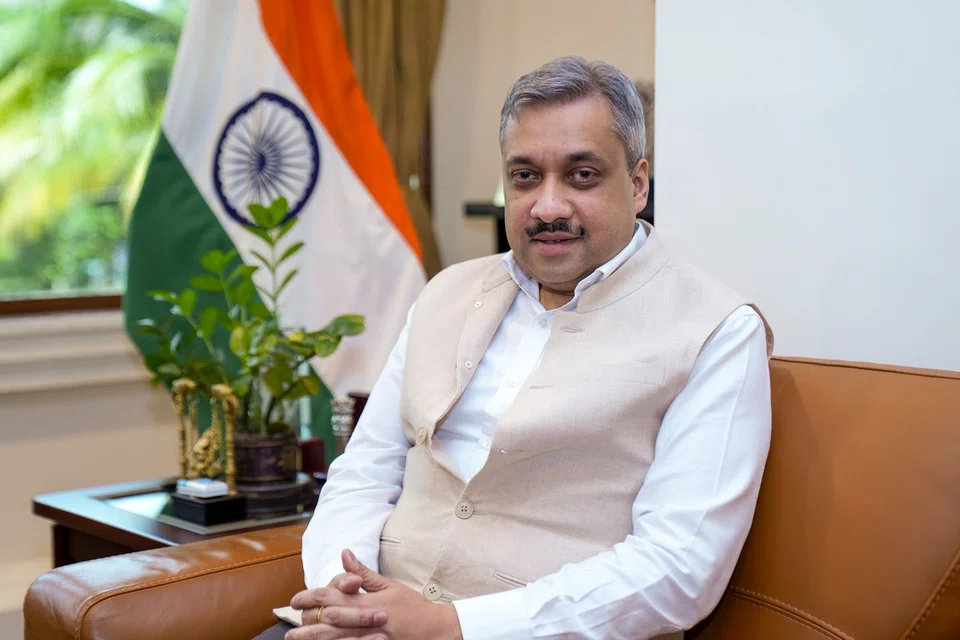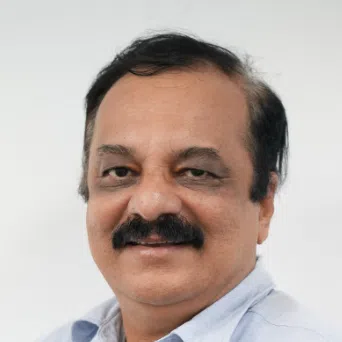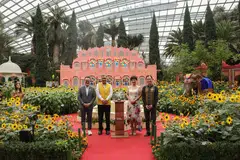For India’s High Commissioner to Singapore Shilpak Ambule, the past two years have been a period of both deepening continuity and dynamic change in the India-Singapore relationship. “Our relations with Singapore have always been strong,” he told tabla! in an exclusive interview, “but there’s been a new momentum since 2023, marked by high-level visits, state engagements, and a shared vision for the future.”
That future now stretches beyond trade and technology – it reaches into space, health, and green innovation, all built on a foundation of trust, diaspora ties, and a shared commitment to progress.
The India-Singapore partnership, long described as “strategic”, turned comprehensive this year. Following Prime Minister Lawrence Wong’s visit to India in September, the two nations signed a Comprehensive Strategic Partnership roadmap, a forward-looking plan that builds upon six decades of diplomatic ties.
“We’ve identified new areas of collaboration relevant to contemporary times,” Dr Ambule explained. “These include space cooperation, nuclear energy, advanced manufacturing, digital health, and semiconductors.”
The partnership is anchored in mutual respect and complementarity – Singapore’s reputation for precision, research, and connectivity pairs seamlessly with India’s scale, innovation, and talent.
Expanding Horizons: From Space to Sustainability
Space has emerged as a symbolic frontier of this partnership. The Indian Space Research Organisation (ISRO) has launched over 20 Singaporean satellites, including the DS-SAR radar satellite, in July 2025 under a new Memorandum of Understanding (MOU) signed in September.
“This MOU deepens our cooperation in research, space law, and technology,” said Dr Ambule. “It’s not just about launches – it’s about shared learning and innovation.”
Equally significant are India-Singapore collaborations in green shipping and energy transition. A Green and Digital Shipping Corridor agreement now connects India’s ports at Paradip, Thoothukudi, and Kandla with Singapore, facilitating eco-friendly bunkering and low-carbon maritime transport. “Sustainability is now central to our cooperation,” Dr Ambule noted, “and Singapore is an indispensable partner in that journey.”
Economic Synergy and State Partnerships
Beyond national initiatives, India’s states are taking centre stage in economic diplomacy. Over the past 18 months, six state delegations and five chief ministers have visited Singapore.
“We’ve reversed the model,” Dr Ambule said. “Instead of telling investors where to go, we let the states present their strengths directly. Each has unique advantages – infrastructure, incentives, or sectoral focus – and Singaporean investors can choose accordingly.”
Singaporean firms, he added, are “very happy with India’s direction” and eager to expand their footprint beyond traditional hubs to new growth regions, including the Northeast.
A 2002-batch Indian Foreign Service officer, Dr Ambule brings formidable experience to his current post. A fluent Mandarin speaker and seasoned East Asia expert, he has served in Beijing and in the Ministry of External Affairs’ East Asia Division before becoming Principal Aide to External Affairs Minister S. Jaishankar.
Working closely with Dr Jaishankar has given him an extraordinary perspective on diplomacy, especially in handling complex relationships with China, South Korea, and Japan. His understated operational style belies a deep understanding of global strategy.
Championing Migrant Workers and the Indian Community
If the high table of diplomacy defines one side of Dr Ambule’s work, the other lies in the dormitories and community halls of Singapore’s Indian migrant population.
“Migrant worker welfare is very high on our agenda,” he said firmly. “We conduct financial and digital literacy camps, organise outreach visits to dormitories, and even bring consular services directly to workers to save them time and money.”
He points out that the Ministry of External Affairs in Delhi has a dedicated division for migrant affairs, while the High Commission in Singapore acts as its on-ground partner. “We also encourage workers to register for India’s Pravasi Bhartiya Bima Yojana (insurance scheme) and pre-departure skilling programmes. These safeguards are crucial,” he said.
The 48-year-old’s approach is pragmatic yet empathetic: “These are people building our country abroad. They live away from their families, save every dollar, and send it home. If one trip to the High Commission can be saved for them, that’s worth it.”
Building Cultural and People-to-People Bridges
Cultural diplomacy remains a vibrant pillar. The National School of Drama’s performances, annual Indian Film Festival, and exchange programmes between Indian and Singaporean students keep people-to-people ties alive.
“We’re encouraging more Singaporean youth to go to India,” Dr Ambule said. “When they return, their feedback is incredibly positive – they see an India that is modern, creative, and full of opportunities.”
The High Commission also collaborates with local Indian organisations to celebrate festivals like Deepavali, which Dr Ambule describes as “a moment of unity, light, and pride” for the diaspora.
The Road Ahead
As India and Singapore mark 60 years of diplomatic relations, Dr Ambule’s tenure coincides with a historic phase of renewal. The Comprehensive Strategic Partnership roadmap promises cooperation not only in economics and defence but also in health tech, precision medicine, and nuclear energy.
“Singapore’s trust and India’s innovation can together shape a powerful narrative for Asia,” he concluded. “Whether it’s in outer space or the lives of our migrant workers, this partnership flows – much like the spirit of both nations – strong, steady, and full of purpose.”



